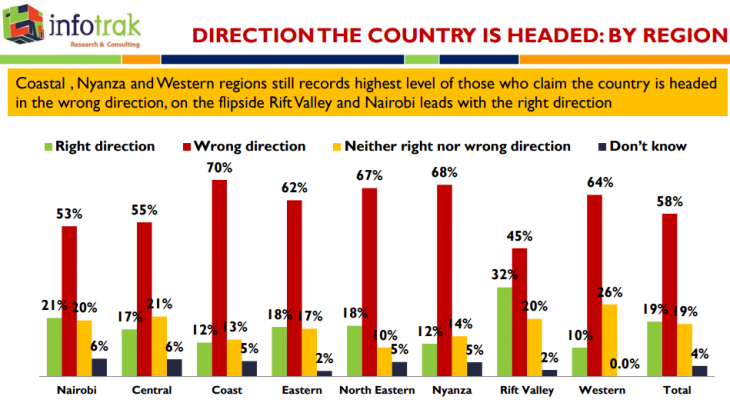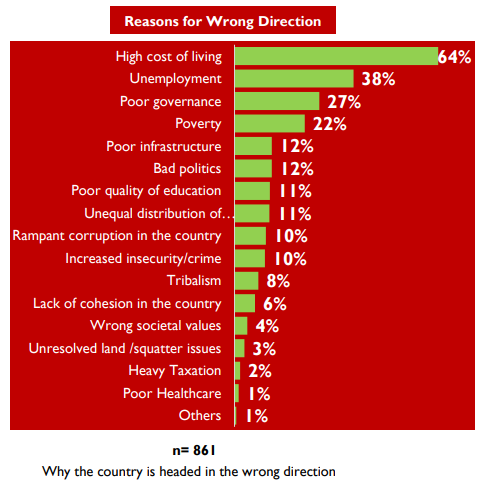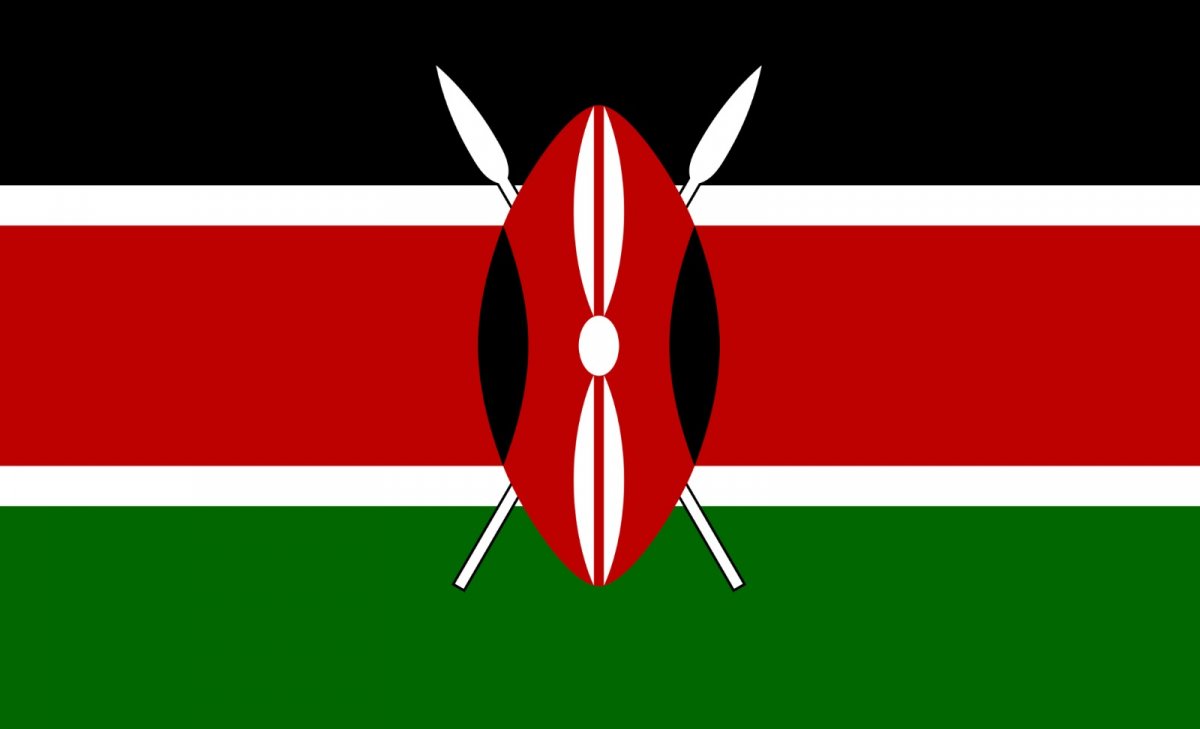Kenya is headed in wrong direction – Infotrak
By Joel Sang, April 11, 202458% of Kenyans feel the country is heading in the wrong direction under the leadership of President William Ruto, a survey by research firm Infotrak shows.
Comparatively, the survey shows that only 19% feel the country is on the right path while another 19% said they did not know whether the country is on the right path or not.
However, the number of Kenyans who feel the country is headed in the wrong direction dropped slightly as compared to a similar survey that was conducted in December 2023 which showed 61% were dissatisfied with the country’s direction then.

By region, Coast leads with 70% believing Kenya is not on the right trajectory. In Nairobi, Central, and Eastern, 53%, 55% and 62% felt the country is in the wrong direction, respectively.
67%, 68% and 45% in North Eastern, Nyanza, and Rift Valley are not satisfied with Kenya’s direction while in Western, 64% said they feel the country is on the wrong path, the survey showed.
By gender, 59% of females and 57% of males polled said they feel Kenya is on the wrong path.
The research firm also used age categories to gauge how the public is feeling about the general direction of the country. 60% of those between 18 and 26 feel the country is on the wrong track compared to 55% of those who are between the ages of 27 and 35.
The government scored poorly from people in the age bracket of 36 and 45 as 57% claimed the country is on the right path. 57% of those between 46 and 55 also agreed that Kenya is headed in the wrong direction.
68% of those who are 55 and above feel the country is on the wrong path.

The research also showed why the majority of the population feels the country is on the wrong path.
Poverty (22 per cent), poor infrastructure (12 per cent), bad politics (12 per cent), poor quality of education (11 per cent) poor governance (11 per cent), and unequal distribution of resources (11 per cent) are among the reasons why the people gave the government a poor score.
Rampant corruption in the country (10 per cent), increased insecurity/crime (10 per cent), tribalism (8 per cent), lack of cohesion in the country (6 per cent), and wrong societal values (4 per cent).

Unresolved land/squatter issues (3 per cent), heavy taxation (2 per cent), poor healthcare (1 per cent), and others (1 per cent) also contributed to the dissatisfaction of the majority in the country.
.
More Articles

